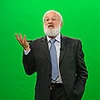Let There Be No Rich Or No Poor?
 The essence of the method is to awaken yourself to move as quickly as possible, to take the force of development into your hands and control it. That’s why I organize the environment made up of people like me, in order for it to influence me and give me additional power. That is, everything depends on my impression from the environment—this is the measure of my ability to advance.
The essence of the method is to awaken yourself to move as quickly as possible, to take the force of development into your hands and control it. That’s why I organize the environment made up of people like me, in order for it to influence me and give me additional power. That is, everything depends on my impression from the environment—this is the measure of my ability to advance.
But I exist in a system of forces and have to know how to get from it the best and most effective influence in order to not harm myself and the environment. Indeed, the harm inflicted upon the environment will return back to me. In this influence there is a force called “the evil eye,” meaning an uncorrected human egoism not covered by a screen, which a person can set in motion unknowingly. Or the person may even be aware of these actions but can’t help it.
If a person sees that someone is more successful than he, he becomes jealous, whether he likes it or not. This can be good, productive jealousy, pushing the person towards development. That is, it could be “the good eye,” when I envy someone and try to advance too. Or it can be “the evil eye,” when I am so jealous I want to kill him because he is greater than me and this poisons my spirit.
There is a joke about this: “Are you making a revolution so that there aren’t any rich people? We were dreaming of a world without the poor….” Which state you desire makes the whole difference: that there are no rich or no poor? With what eye are you looking?
It’s the same in spiritual work: When you’re looking at a friend who is greater than you, do you want to bring him down or to advance yourself?
[44024]
From the 1st part of the Daily Kabbalah Lesson 5/26/2011, Writings of Rabash












